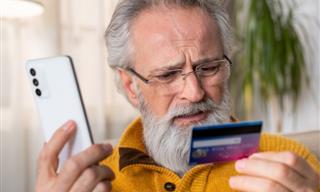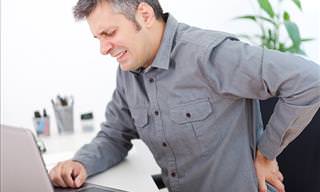

COVID tests are among the most sought-after merchandise these days. Everyone is trying to have a few kits on hand, just in case. With this rapid rise in demand, the number of fraudulent tests had also risen dramatically. The Federal Trade Commission (FTC) recently warned the public that several fake at-home COVID-19 tests are circulating on the market.
Further, the Food and Drug Administration (FDA) recalled 200,000 unauthorized COVID-19 test kits produced by ACON Laboratories. The name of the test is “the Flowflex SARS-CoV-2 Antigen Rapid Test (Self-Testing),” and the FDA points out that this product did not receive an emergency use authorization (EUA) from the agency. To complicate matters further, the company has another test - the Flowflex COVID-19 Antigen Home Test - that did get EUA authorization.
Verywell Health points out that the ACON test in the blue box is the one that’s been recalled and the one in the white box is fine to use.

In addition, over 2 million Ellume COVID-19 Home Tests, which were initially authorized but turned out to give too many false positives, were also recalled.
If you're not sure if the test you have at home is real, you can easily check it on the FDA website. Their website lists many test kits and features the brand names of each product for easy reference. You can access it here:
FDA list of authorized COVID-19 tests
You can also reference this list to avoid buying a counterfeit test. When purchasing an at-home COVID test, choose a reliable source like your local pharmacy. Avoid buying tests from street vendors, websites other than pharmacies, through email or telephone calls. There have been reports of vendors selling expired or fake tests in old boxes, as well as tests from unknown foreign sources.
“Packaging should also not be in foreign languages, and all kits should come in boxes, not as individual pieces or in plastic bags,” said Geoff Trenkle from Total Testing Solutions, a company that produces COVID-19 tests, to Healthline.
If someone is selling tests door-to-door or contacts you about COVID tests via telephone or email, this is a red flag. Scammers interested in your personal information with the goal of identity theft will often call or visit unknowing consumers and offer them free COVID tests in exchange for social security numbers and other personal data.


Omicron COVID Variant - Here's All You Need To Know
Omicron, the new coronavirus variant, is raising a lot of concerns worldwide. Here are a few things you should know about it.

Consider Deep Breathing For COVID19 Prevention & Self-Care
Can deep breathing techniques help lessen the impact and risk of COVID-19? And if so, which deep breathing exercises are the most beneficial?

7 Common Bank Scams and How to Avoid Them
Banking scams continue to evolve with time, but with proper knowledge you can learn to avoid them.

First Pill to Treat Covid-19 Authorized by the FDA
This is the first-ever at-home COVID-19 medication to receive FDA approval. Read on to learn more.

Warning! Beware of These 5 COVID-19 Scams
Covid-19 scams are more common than you think, and thieves and charlatans seek out unsuspecting victims using many different methods.

Flurona - When the Flu and COVID-19 Overlap
Can you really catch the flu and coronavirus simultaneously? And if so, how can you tell that you’ve got ‘flurona’? Read on to find out.

12 Superfoods That Burn the Fat Off Your Diet!
These great superfoods should be part of everyone's meal!

4 Simple Exercises to Reduce Vertigo and Dizziness
If you are suffering from vertigo or unexplained dizziness, try these simple exercises to relieve the annoying and unbearable spinning sensation.
 15:50
15:50
Doctor Tip: How to Prevent Ingrown Hair
In this insightful video, Dr. Adedeji shares her expertise on preventing ingrown hairs.
 4:55
4:55
The MOST Important Exercise to Practice For Seniors
This video will walk you through one simple exercise recommended daily for older adults.

Owning a Cat Can Do Wonders For Your Health!
Pet ownership, especially cat ownership, can improve the quality of a person's life. Here are 10 health benefits of owning a cat.
 10:38
10:38
Prevent Alzheimer’s by Using These Expert Techniques
Listen to this expert's views on techniques that the elderly can use to enhance their brain's health.
 3:06
3:06
The Surprising Reason Keeping Secrets Could Damage Health
Keeping secrets takes its toll on your mental health in multiple ways. Here's how to cope with that.
 8:25
8:25
The Perfect Seated Core Workout for Seniors and Beginners
In this video, two physical therapy experts will guide you through a short seated core strengthening workout suitable for seniors and beginners.
 7:22
7:22
Try This Natural Drink to Detoxify and Cleanse Your Liver
This natural, easy-to-make drink can do wonders to your liver!
 14:44
14:44
The Secrets to Getting More Oxygen in Your Cells
The best (and easiest) exercises for better breathing.

Beat Spider Veins With These Efficient, Natural Tips
Do you suffer from spider veins? Take advice on how you can treat or avoid them without paying a penny!
 8:38
8:38
This Amazing Nutritional Plan Does Wonders For Your Health
The "daily dozen" nutritional plan was designed for people to follow should they wish to stay in optimal health. Learn more!

10 Instant Self-Checks Worth Performing Regularly at Home
Our body can give certain signs we don't always realize are indications of a bad health or disease - learn 10 brilliant ways of checking out your body for these signs regularly from home.
 6:54
6:54
These Potent Foods Will Keep Your Oral Cavity Healthy
Consuming these nutritious foods will help to keep your teeth nice and healthy.
 8:02
8:02
The Added Benefits of Walking No One Told You Before
We all know walking is good for our health. But we bet you didn’t know about these little-known benefits of the activity.
 4:34
4:34
What Happens When We Eat Oatmeal Every Day?
Why is eating oatmeal every day so healthy, and what happens to our body when we stick to it?
 2:17
2:17
Sit Like This at the Computer to Avoid Backache
This brilliant video shows you how you can avoid back pain when sitting at your computer.

Five Habits that Secretly Cause Heartburn
Learn everyday habits that may seem harmless and insignificant but could actually exacerbate the condition and make heartburn unbearable.
 11:29
11:29
Watch 20 Doctors Give Their Best Health Tip
20 top doctors, each an expert in a different medical field, all sharing one valuable health tip - packaged neatly into a single, convenient video
 1:11
1:11
Here's How to Clear a Stuffy Nose Instantly
There are some truly bizarre methods for clearing a stuffy nose out there, but they really seem to do the trick. Learn these methods today.

Remove Age Spots Easily with Two Simple Ingredients...
Got age spots? Here's how to remove them easily.
 2:24
2:24
How Does Losing Weight Affect Our Bodies? Find Out Here!
Ever wondered what weight loss does to your body and brain? If so, you're about to find out!
 4:01
4:01
Doctor Tip: How to Drain Sinus and Clear Nose in 1 Move!
This doctor has a genius routine for draining your sinuses while also clearing your nose.

Everything You Wanted to Know About Healthy Tropical Fruits
Learn about eight easy-to-come-by tropical fruit that are both delicious and oh-so-healthy for you!
 6:20
6:20
Is Breakfast REALLY the Most Important Meal?
Breakfast is the most important meal of the day - truth or myth? Watch to find out what happens to your body when you stop eating breakfast for two weeks.
 5:50
5:50
Not What You Though - How Healthy Skin REALLY Looks Like
Short, concise, and straight to the point - here are 5 skin health myths busted with clear scientific explanations.
 5:03
5:03
The Secret to Flexible Muscles: How Stretching Works
Discover the actual effects of stretching on your muscles and learn ways to enhance your flexibility.

Think Over-the-Counter Medications Are Safe? Think Again!
It's easy to think over the counter drugs are harmless, but you better read this before purchasing! Let's look at the dangers of taking over-the-counter drugs and how they can be avoided.
 6:32
6:32
Unusual Signs of Vitamin B3 Deficiency You Mustn't Ignore
You may not realize you have Vitamin B3 deficiency!
 5:47
5:47
Shocking! This Is What Chocolate Does to Your Arteries...
Can chocolate cause strokes? Find out in this informative video from Dr. Greger.
 4:28
4:28
How Can You Tell a Common Cold Infection from Influenza?
The common cold is among the most prevalent virus infections in the world. What's the best way to treat it?

In an Emergency, It's Crucial to Know Some CPR...
This guide will take you through the information you need to know to perform CPR. Let's hope you never need to use it.
 9:22
9:22
How to Effectively Improve Leg Circulation by About 75%
Here’s how you can improve blood circulation in your legs and feet effectively.

For Great Health, Add Goji Berries to Your Shopping List!
From fighting aging to a super-charged immune system, this miracle fruit carries with it so many health benefits it should be in everyone's shopping cart.

Say Goodbye to Your Double Chin with These 5 Exercises
These 5 exercises will help give your chin a tighter, younger, and healthier look, and eventually to help you get rid of a double chin all together.
 10:30
10:30
These Exercises Bring Relief to Sciatica and Nerve Pain
A pinched nerve in the back can be a bothersome chronic condition with frequent flareups. Here's how to bring instant relief to this type of back and leg pain.
 8:38
8:38
Reduce Intestinal Inflammation with This Amazing Drink
Watch this video to know about a potent juice that can help reduce intestinal inflammation.

Hemorrhoids: How to Treat Them the Natural Way
In this article you will find out what are the causes of the problem, what are its symptoms, how to alleviate it in natural ways as well as other ways to deal with its symptoms.

HOW MUCH Exercise Do I Need to Burn Off These Foods?
Before you go for that takeaway, you should see how much exercise you will need to do to burn off those calories. This chart will show you.

9 Effective Ways to Make Your Nausea Go Away
Nausea is that unpleasant feeling of discomfort inside your stomach, oftentimes leading to vomiting. Use one of these natural methods to stop it.

How to Treat an Obstruction in Your Stomach
Did you know that you can naturally treat gastric obstructions by adding to organic ingredients to your diet?


